
Symptoms of colon cancer
Colon cancer is the most frequent malign tumor of the abdomen. Etiological factors that contribute to the creation of the colon cancer are eating habits (intake of food rich with fat and carbohydrates, and with small amounts of the fibers such as cellulose, pectin, hemicelluloses etc.). This is followed by the accumulation of fecal matter in the colon, which is dangerous because there are potentially cancerogenous substances in feces and when feces maintains contact with the inner walls of colon longer, it might lead to creation of cancer cells.
Some other factors that might induce this type of cancer are some elements of bile. Certain diseases such as familial polyposis, ulcerative colitis and adenoma carry certain risk of creating a cancer. This cancer can have several forms, and annular form creates a ring that narrows a part of colon, thus blocking a passage of matter. There is also ulcerous type and the main symptoms are blood in the stool and pain, while the third type is a vegetative or polypoid form. Annular form happens more often in the left colon, while vegetative form is more frequent in the right part.
Other possible symptoms
One of the major symptoms that follow colon cancer is chronic anemia. Patients that suffer from this illness often do not pay too much attention to the possibility of colon cancer. This is important to know, because if the colon cancer is discovered in this moment, full recovery is possible. Chronic anemia is induced by the colon hemorrhaging, which can be visible or not. Visible bleeding tells us that process of malign alteration of cells has begun. Another important symptom is change in the rhythm of defecation. Annular form creates switching from constipation to diarrhea and back, abdominal pain also might be present, which is a sign of the infiltration of the malign cells from the colon into surrounding tissue. Also, the mass of the cancer strains the surrounding tissue.
Often, abdominal pain and defecation urge appear at the same time and combined. Sometimes, there is mucus in the stool and fake defecation urges might happen too. If the cancer is advanced, it is even possible for the doctor to palpate the tumor. When malign infiltration happens, malign cells can transfer via blood and lymph, and in this way, metastasis can appear in liver, lungs, brain, kidneys and bones. Lymphatic nodes are enlarged when the malign cells transfer through lymph. This is also a sign of a colon cancer. As for the treatment, basic form is radical surgery intervention, combined with medications. Of course, the best thing would be to discover this cancer in its early stage, when there are no symptoms at all. This can be achieved with regular medical examination.


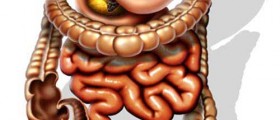
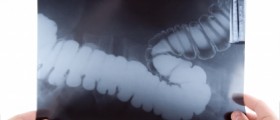

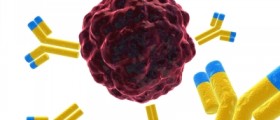


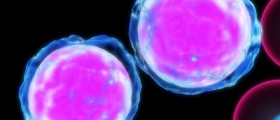



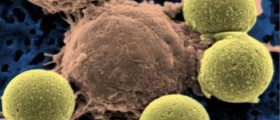
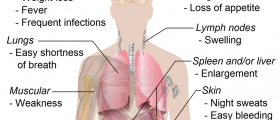



Your thoughts on this
Loading...